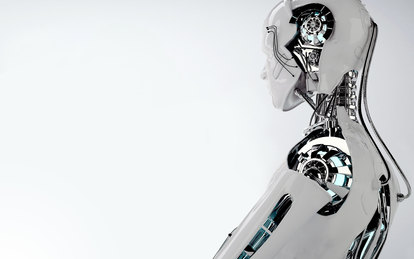IdeaLab: Disrupting the Healthcare Status Quo

Over the last several years, there has been massive disruption in the healthcare industry—disruption that has affected healthcare providers, patients, and designers. Though we will continue to see the impact of these changes, we believe there is still more and perhaps greater disruption to come in the next few decades, in the form of political, social, technological and environmental change. These shifts will alter not only the needs and expectations of patients but also the role of providers and their ability to provide efficient and comprehensive care. To give providers the tools they need to prepare, SmithGroup is actively working to anticipate these disruptors and the potential impact they could have today and many years in the future.
No one can predict the future.
At SmithGroup, we’ve launched a new research and innovation process called IdeaLab that gives us the creative space—outside of everyday project concerns—to study future healthcare and other industry disruptors in depth. As part of this initiative, we are looking at what inventions, products, technologies, and strategies are in the pipeline (or not yet imagined), and we try to anticipate what those will mean for the industry and, most importantly, for our clients.
Major hospitals can take a decade or more to plan, design and construct; what used to be thought of as 50-year-old buildings have to be able to adapt to change in as little as five years. By assembling thought leaders, question-askers and visionaries with diverse perspectives, we’re able to map the future healthcare landscape and identify potential areas of exploration long before those changes take hold.

Apocalypse or Utopia?
Many healthcare professionals may view the advancement of A.I. with trepidation. The reality is that A.I. is inevitable. As of today, there is A.I. tech that can recommend tumor-specific cancer treatments, help with disease management, scan for potential clinical trials, eliminate unnecessary (and costly) care services, detect and understand emotion and, potentially, even predict patient health patterns.
And that’s only the beginning.
The next few decades will likely see an explosion of A.I. and technology development. Could nurses, doctors or even hospitals altogether really become obsolete? On the other hand, what if A.I. simply makes the work of these professional easier, more efficient and better for patients and the public health in general?
These are both valid—and highly important—questions. That is why we’ve chosen A.I. as the focus of our first IdeaLab exploration. Industry experts and three teams of SmithGroup health professionals sat down to imagine what true potential lies within A.I. and how it could disrupt the healthcare industry—both for better and for worse—today, tomorrow and decades down the road.
A.I. is already here.
A.I. has already changed healthcare in a big way. But our research teams imagined a future world where it is the chassis for the entire industry—a world where patients can walk into their local drug store, step into a kiosk, be scanned for various diseases and conditions, and pick up prescriptions right on the spot. They foresee wearable devices that can scan for cancer, high blood pressure, diabetes and more. They imagined ways A.I. could complement already existing services, allowing healthcare professionals to be more effective. In short, they foresaw an industry that uses technology to offer more thorough, more accurate and more comprehensive patient care on the whole.
What's Next
At SmithGroup, we make asking questions and seeking out disruption a part of our daily process. Though about to turn the industry on its head, artificial intelligence is just a small part of healthcare’s long-term trajectory. In hosting ongoing Futures Forums and IdeaLabs, we will continue to anticipate disruptors and imagine a future-state healthcare industry. Here are just a few quick takeaways from our research.
- A.I. will help better aggregate and analyze medical data, improving both patient diagnoses and treatment efficacy.
- Wearable, ingestible and implantable devices will make early detection easier, and treatments will be administered in more convenient, transparent ways.
- A.I. technology and architecture will become one, with telemedicine kiosks, virtual hospitals, and other similar developments becoming the norm.
- A.I. will make the management of chronic conditions and overall health and wellness a seamless part of everyday life.
- Geographic and time boundaries will cease to exist. Patients will be able to consolidate appointments, consult with professionals from all over the world, and enjoy a shorter care pathway overall.
- Drones will make prescription delivery and emergency care faster and more efficient.
- Basic tasks like scheduling, visit planning and even taking vital signs and health histories will become automated with the use of A.I. tech.
Our Innovations in Practice initiative is designed to encourage a more forward-thinking, innovative discovery process that can better position our clients for the future state of the healthcare industry. Through this initiative, our team seeks to explore the big-picture context and long-term trajectory of our client industries, while also anticipating the coming innovations that could change the nature of business and society.
Learn more about IdeaLab or the IdeaLab teams' findings, The Driverless Clinic, A Smart Clinic Empowered by Data, and Better Access through AI. Download our full report here.